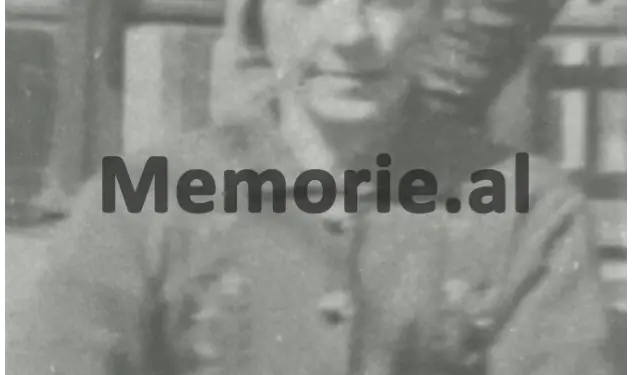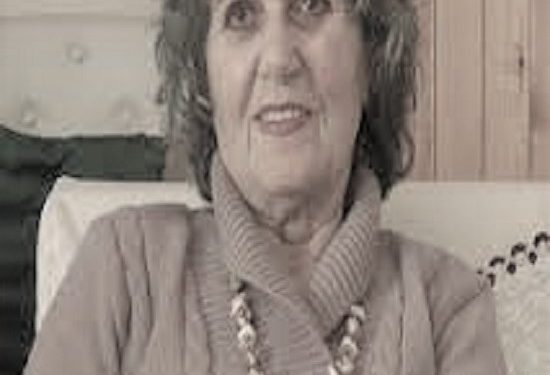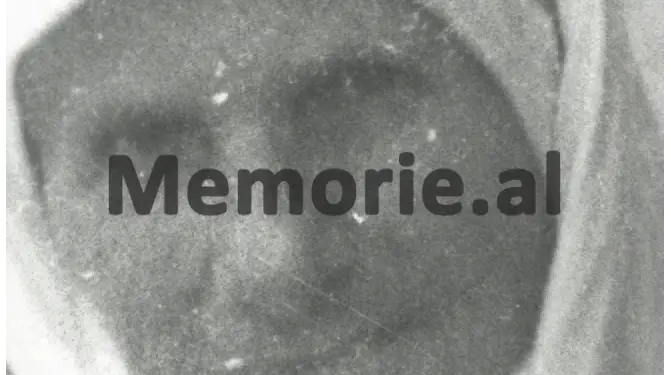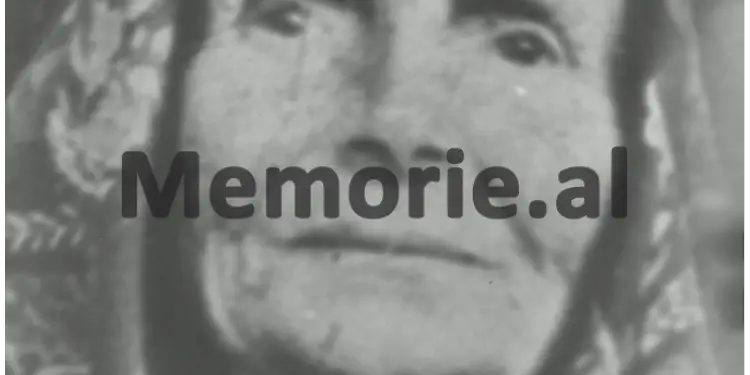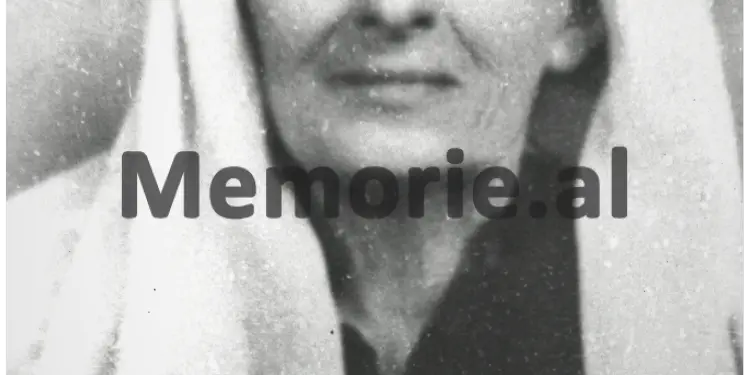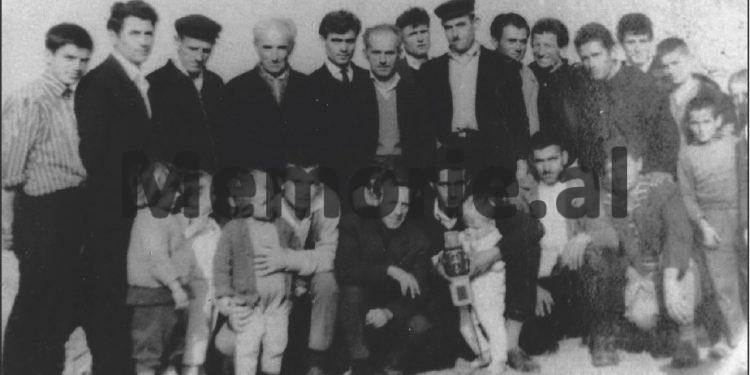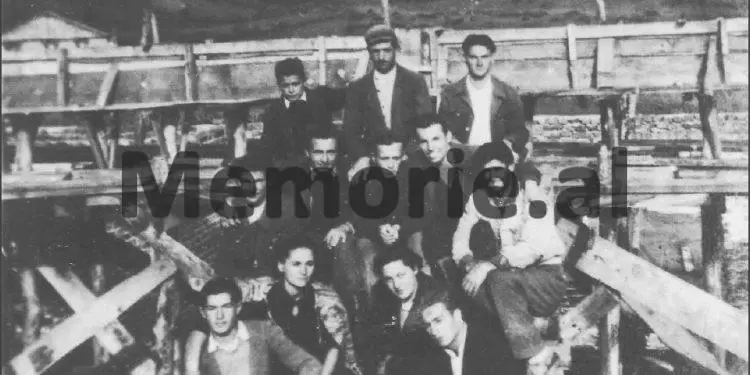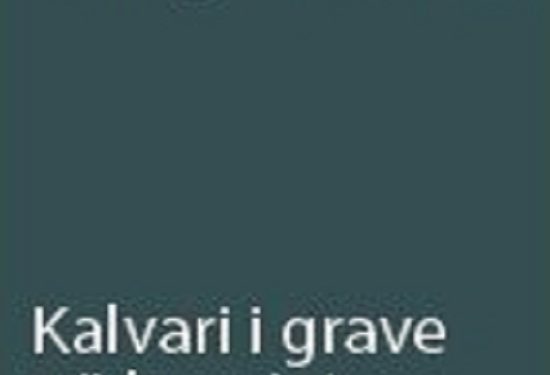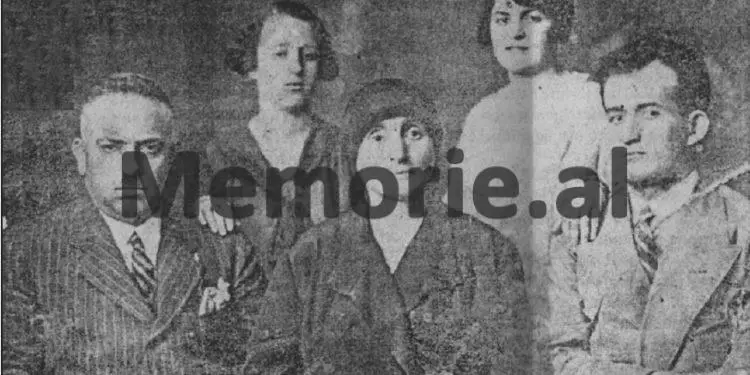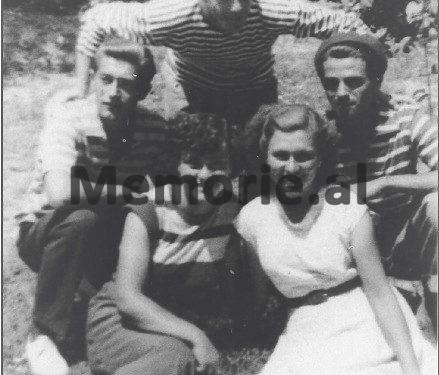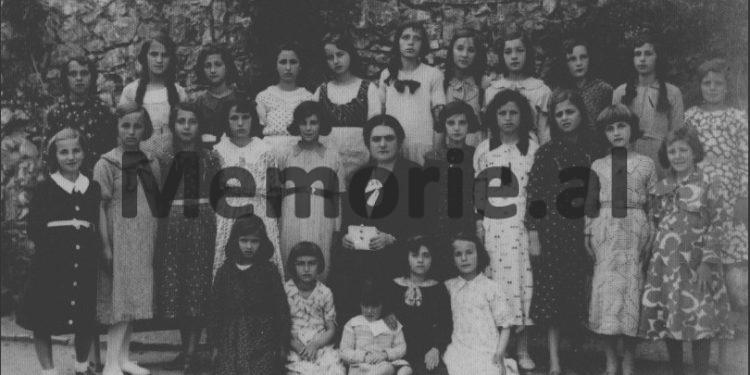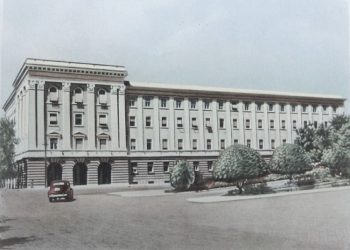Fatbardha Mulleti (Saraçi)
Second part
Memorie.al publishes some parts from the book ‘Calvary of women in communist prisons’ by Fatbardha Mulleti Saraçi, (granddaughter of the famous former mayor of Tirana, Qazim Mulleti), whose family from 1944 until In 1991, he was persecuted by the communist regime of Enver Hoxha, where Fatbardha’s father, Haki Mulleti, a former senior state administration official from the 1920s, was imprisoned and interned by his family, until died in the hospital of Tirana, poisoned by the State Security. In her book “The Calvary of Women in Communist Prisons”, which comes from several years of work, the author has masterfully described the unknown stories of some of the Albanian women and girls who suffered in prisons and internments in the dictatorial regime of Enver Hoxha, starting from her mother, Pertefe Mulleti, Marie Deda, Hajrie Kazazi, Kushe Seknej, Mrike Pali, Zyliha Rusi, Roza Jakova, Fatime Dilaveri, Hatixhe Pipa, Marije Gjoka, Angjelina Topalli, Hatixhe Kopliku, Nafije Kopliku, Vebi Bushati, Adile Kazazi, Antonela Dostanishta, Nafije Stërmasi, Luçije Saraçi, Adile Meta, Qeuthere Meta, Feride Damnori, Vitore Ashta, Fetije Vuçiterni, Zehnije Gjylbegu, Xhyhere Kazazi, Luçije Malaj, Sadije Kazazi, Zadeva T, Lezinë Moni Luçije Kurti, Rukije Bushati, Shaqe Logoreci, Qamile Myftija, Marie Ndokëllia, Rozë Çefa, Çilë Staku, Shaqe Marku, Lajde Arapi, Lutfije Barbullushi, Syme Muka, Zenepe Kraja, Fahrije Kazazi, Naxhije Curri, Nexë Plaku, Bade Kjaraj, Hava Baçi, Xhehadire Boriçi, Vitore Kalaj, Katerina Benusi, Sofije Baja, Lenë Pjetri, Dava Markagjoni, Mrika Markagjoni, Marta Gjonmarkaj, Bardha Gjon Markagjoni, Kristina Gjomarkaj, Çelestina Gjomarkaj, Mrika Pervizi, Krena Dine, Vera Dine, Agime Dine, Hamide Çela, Vera Dine, Kadrije Cami, Sanije Sulaj, Meliha Sulaj, Vashe Kola, Prena Llesh Gjeçi, Gjystina Seku, Ilda Melgusha, Agime Pipa (Aranitasi), Terezina Pali, Liza Pali, Adile Boletini , Nasibe Kazazi, Ana Daja, Dila Zef Ndoja, Zyraka Mano, Shanisha Dosti, Zojë Gjeloshi, Drane Stakja, Elena Luli, Sabiha Kasimati, Marije Deda, Marije Shllaku, Biçe Pistulli, Sadije Kazazi, Gjyzepina Çoba, Marta Doda, Frida Satedini, Vitore Kuka, Gjela Llesh Biba, Bardha Cub Marku, Liza Llesh Mali, Bardha Mark Bushkola, Marije Tuci, Olimbi Baruti, Angje Kovaçi, Bedrije Ashikja, Musine Kokalari, Motër Gjeorgjina, Liljana Radovani, Laura Keqi, Mrike Pepa, Angri Shantoja, Naime Koçi, Sheriar Sefa, Vitore Shllaku, Liza Gjon Voci, Nina Shiroka, Laje Mehmeti (RRema), Feride Beshiri (Quku), Hasije Ulqinaku (Quku), Sofije Kali, Çile Gjush Larja, Nurfezo Koprencka, Sanije Gjylbegu, Emilja Shestani, Marije Bregu Radovani, Nedrete Pipa, Motrat e Osman Kazazi, Safete Jusif Sokoli, Çiljeta Simoni, Lutfije Buashati, Sadije Bushati, Olga Schëeizer Libohova, Evelina e Ndoc Naraçi, Geraldina Apony-Zogu, Hilda Zyma. Marie Rafael, Zade Muka, Rukije Bushati, Hajrie Vrioni, Emine Gjyrezi, Xhemile Beqir Komi, Hedije Dume Repishti, Syme Muka, Fetije Vuçiterni, Sebije Puka, Marjeta Serreqi, Dhurata Sokoli, Klara Miraka (Merlika), Asi , Liri Cenaj, Rudina Dema, Adelajde Miraka, Drane Jakja, Syriha Hasi, Aishe Gogaj, Luçija Kaçaj, Gjyljana Malaj (Pervizi), Nadide Kasaruho, Nadire Kërçiku (Peshkëpia), Shpresa Ballolli (Merdani), Makbule Frashëri, Misly Çrash Dervishi (Leka), Natali Arkandi Rozengolc (Pengili), Vigelmina Vitalij Kovaleshko (Veshi), Rukije Rama, Tefta Tasi, Liri Lubonja, Kozara Kati, Shpresa Ngjela, Vera Bekteshi, etc.
Continued from the previous issue
Mejreme Dervishi
(1896 – 1978)
Because she could not stand the mistreatment that the Montenegrin state inflicted on Podgorica, her family, in 1900, settled in Shkodra. She was 4 years old at the time. Here he grew up and loved the place very much. He later taught that education to his children as well.
The first case to show this was when fascist Italy attacked Albania. His son, Mustafa, a 19-year-old boy, among the patriotic people, demonstrated in the streets of Shkodra. He would pass this spirit on to his students at the State Gymnasium. He joined the ‘National Ball’ and led his youth. He also led him to the demonstration of July 26, 1943, where he was killed. One arm seemed to be torn from the desolate mother. Maybe a little; his heart went out of place. The tract that circulated immediately and the visits of his friends, as if they were healing his wound. He remained a martyr and she would not forget the words she had said to her mother about dictatorships, right or left, but she could not conceive of what she would suffer from the dictatorship, which was not long in coming. In 1946, the family of this martyr was evicted. Then everything of value is robbed. It hurt her desolate, especially the things that reminded her of her son, especially the books that filled a room. She would never forget how the communists would pierce her son’s eyes in the portrait he kept in the room, and under it would write the words: “fascist”, “traitor”, “bloodthirsty”, epithets that more than to everyone, went to those who did this profanity. Throughout her life, that portrait was fanatically preserved. He and his wife and daughter were arrested shortly afterwards. In the dungeons of the investigation he realized what he would find his son if he were alive. From that hell, the daughter came out half paralyzed. The poor mother, until she died, would not forget the thought that her son had been killed by the communists in the demonstration, just like that, behind his back. Fortunately, he did not experience the false act of declaring his son a ‘Martyr of the National Liberation War’, 40 years after his fall.
After the expropriation, for 30 years she lived in the basements, but without giving herself up. He was also angry when he saw how, one after the other; his son’s friends filled the prisons to rot there, or took the roads of exile, to escape the communist holocaust. They seemed to be her sons, they reminded her of the anti-fascist resistance…
I closed my eyes with the hope for better days…!
Kushe Seknej
(1897 – 1960)
For mother Kushe, the troubles came early. Originally from Tuzi, we got married in Podgorica, in order to escape the repressions of the Montenegrin chauvinists; she was forced to move to Shkodra as a family, where she found help and support. Like all mothers, she tried by all means and opportunities to raise educated and useful children for society. Years passed and Albania fell under the hooves of the Italian fascists. Her second son, Seiti, was put in the service of the national cause, becoming a member of the ‘Balli Kombëtar’ organization, and you became one of its exponents. Meetings … discussions … clashes of thoughts there, in her house. She also found it appropriate to fight, to secure ethnic Albania. But he was also worried about his son and his friends, he had smelled something….! Everything could be expected from the communists. The national idea was valued differently from the latter. Assassinations had also taken place. “Beware, son” – he would say to her, every time he escorted her to the doorstep. And with a frozen heart, he waited until he returned, late at night. “Be careful, son, the communists did it.” After the demonstration of July 26, 1943, he was forced to become illegal. “Let the house burn down” – she said, “the chimney smoke, except for the boy, do not find anything for me. “Neither him nor his friends.” We constantly worry about the boy. EverydAy. Until one day, when the black news came to him, that Seiti had been killed in the assassinations. As much as we anticipated, so sudden was this mandate for the desolate mother. And she, like other mothers, felt that something was detached from her body. The heart, perhaps the most delicate part, was removed.
It was a great consolation to the telegram of the President of the organization of ‘Balli Kombëtar’, for Albania, Mithat Frashëri. The constant presence of the young martyr’s war comrades was also a consolation. “They really wanted it,” she said. “Liberation” came. The eldest son is arrested. For 8 years in a row, she would follow the boy to prison. 8 years, so collected from the sufferings. Could she tolerate these of ours? Could he have endured the boy being killed by the communists? Could he endure, when he saw how the boy’s friends were rotting in prisons and some he did not see anymore? In these circumstances, he died at the age of 63!
Gjyste Shestani
(1872 – 1944)
Her life was divided into two phases: with joy and happiness until 1929; with many afflictions and troubles after it. She shared that joy and happiness, those sorrows and sufferings with her husband and her four children. She was fat, tall, authoritarian and of strong character. She was an assemblywoman and a clown. He liked the kanga, which he had in the family tradition. It “exploded” especially when the Carnivals of the city came, it echoed from the songs and humorous verses of thousands of people, to hide behind masks, sting and hit the flaws of the time. Well, on this so popular holiday, she would not bother with her husband’s shoes, put her arms around her belt, put a mask on her face and go for a visit, among good friends. Or, on winter nights, by the chimney, they would sit cross-legged, with their hands on their cheeks, and start singing folk songs. And the children heard him bewitched, swallowed up. This was her family environment. Year 1929. His only daughter dies young bride, you left a 6 week old daughter…! Her eyes change, they look melancholy. Even the body seems to start breaking. Even the step seems to slow down the pace…! For three years she lives with her son, Dom Zefi, in the village of Mali-Kolaj, where he was a parish priest. Time seems to move faster. Her husband dies, Italy invades Albania. l son, though priest, preaches endurance. The ‘National Front’ is created and he is lined up in it. Checks begin. He is illegal. From the mountain, he dedicates a song to his mother Gjyste: “Besa-besë, mother, can you hear me” … etc. Again checks, and after he is not found, they exile Nana Gjysten, with her niece in the Tepe Hills, where she stays until the capitulation of Italy. The next day in exile, the other son, Peter, went to fetch food. When the guards of the camp informed him that his son had come, the desolate woman let out a shout that was heard by all: it was nane heart.
She returns home, her son also returns from the mountain. We both rejoice. The family breathes freely, but does not last long, because the nationalist activity continues, and now it is sought after by the Germans and their tools. Dom Zefi back in the mountains, mother Gjystja – again alone, at home. Still checks she still stands like a man. So several times in a row. Even from the communist “front”, bad news had started to come. His son, Dom Zefi, was considered their opponent. Intuitively, she realized that her son was not doing well. The Germans would soon leave. It was clear that the communists would take power: “What will happen to the boy?” “Third – the truth.” These thoughts have been boiling in my head for a long time. Twice the son was able to escape the fascists … what about now?
It was October 15, 1944, when he suddenly suffered a cerebral hemorrhage and died. They escorted him to the last apartment with all due respect. He died without having a son nearby, but also without knowing the communist dictatorship, which, of course, he would have faced, if he had lived, to see her Pauline being shot, and Dom Zef Shestan in exile, which he had not seen. Never native land!
Mrikë Paul
(1900 – 1976)
She is the mother of Ndue Paul. She is the mother of three other sons, but she is known in the history of mothers’ pain, mainly for Ndoja, her eldest son, although he taught everyone patriotism. This was the reason why the Italian fascists exiled him to the islands of Italy. For the mother, this was the first spear stuck in her heart. For Ndoja, it was a longing for his mother; it was also a longing for Albania. September 1943. After the capitulation of Italy, Ndoja returns to his homeland. The Communists had just once again betrayed national ideals in Mukje. They decided that Ndoja, together with the students of the state gymnasium, would never dedicate himself to the national cause. Meanwhile, the Slavo-communist beast, after using all its means, took power, and in order to be safe on its throne, eliminated (the smallest word that can be said), the political opponents. Ndoja was one of them, so he is arrested. It was the second spear for Mrikë loken, but … no tears! Oh God, how strong this woman was! She knew why her son had been imprisoned, the pillar of the house, she knew his determination, so she did not faint. The days passed, the sufferings increased…! August 1945. The trial of Ndue Paul and his comrades takes place. The witnesses of that trial know how he faced the accusations; they also know how he opposed the ignorant judges. Everything we prejudiced..! Death penalty…! It was the third spear, but not the heaviest. Could that heart endure? He could bear it. And endured. Especially when he later found out that his son was tied up like that, when they went to get them to be executed, he had a fight with the executioners. The rifles killed not only Ndue Palin. They killed the beautiful morning of that summer day. Those rifles wanted to kill even the weary heart of his mother, all the comrades of his great idea, wanted to shrink the people. But no! Mother Mrika walked with her little boy by the hand, ignoring the police, towards her son’s corpse. Only she knew what she was feeling at that moment. Nobody else. No one really understood. He knew that the lifeless body would not be given to him. Therefore, after removing the bloody skirt, he put it on himself…! O God! As if it were a new carnation on mom’s body. He was the son. Again, no tears…! Returns home. Many people have come to comfort him. Instead of the corpse, in her bosom, he brought his blood..! The blood of her blood…!
No tears in people eye … just lava that was squeezing and squeezing in her heart, to explode, like that, only in solitude. Until he closed his eyes. He always worked with the boys and remained, as if he knew, as if he were there at the place of execution of his son, as if he heard from his mouth, before he was shot: “WORK UNTIL DEATH FOR A FREE, INDEPENDENT ALBANIA , ON A MODERN DEMOCRATIC SOCIAL BASIS. ” Knowing his brother’s work, implementing it and his mother’s wish, Ndoja’s brother, Zefi, placed on the martyr’s grave, the flag with the black Albanian with two heads, without the ominous star.
Zyliha Rusi
(1883 – 1966)
Anyone who can think of Zyliha Rusi, of course, will remember the suffering she experienced in the last 20 years of her life, but no one can create the full picture of the troubles that woman went through. Maybe she herself, if she were alive … She was in her 60s, when, one after another, the communist regime arrested and threw 4 boys into prisons. The second, Fahriu, would be sentenced to death. The day he learned of his son’s death would be even darker for him. Where to cry him? Where to put a flower tube? All that remained was the picture that hung on the wall…!
The estate, put on sweat, is confiscated from him: he begins to desire even the bread of the mouth. He had known the Turkish, Serbo-Montenegrin, Austrian, Italian, German occupation, but he had not known fukarallëk. Of the remaining 5 boys, three are in prison. The other two with different jobs away from Shkodra, away from it. Alone, with her husband and daughter, she married Zife. Three people in three different prisons. They had to be provided with food, they had to be sent there on the appointed day. Every month, on top of trucks and on foot, in rain and sun, in frost and heat, in dust and mud, you wait patiently for the prison door to open. Sometimes in Kavaja and sometimes in Maliq, in Rrogozhina, Vlashuk, Shkodra. Every month for years and years. When he returned home with a heart that was dripping with blood, with a soul that was in pain, he gathered all the remaining forces, he could only say that: “They were made of bones and skin.” It crashed into the minder and melted in the oil. The prison door was closed, that of exile for her sons was opened. He had known many invasions, but he had never “wrinkled” his mouth so far. However, her husband was also arrested several times. Thus the house remained in women, as the people say, as two boys worked away. Want them in prisons, want them out of them. The troubles had no end. Diseases that start keep the “law” at home. Deaths also began; children to be orphaned. Who did he serve first? He was approaching his 80s.
The time came for the boys, again, one after the other, to be released. Where to wait? Where to place them? In haura and uninhabitable houses, because it had been years since their house had been nationalized. And when the moment comes, when the man finally takes a deep breath, it happens that even then he dies, as happened to her, in 1966.
The life of Zyliha Rusi, long and full of suffering, remains an example of resistance and stoicism. She also remains the model of the woman destined to prove how much she can endure …! /Memorie.al
The next issue follows




